
Researchers trial new therapy for male offenders with antisocial personality disorder
Bangor University has played an important role in researching a new psychological therapy for male offenders with antisocial personality disorder (ASPD). The study, published in The Lancet Psychiatry and funded by the National Institute for Health & Care Research (NIHR), investigated whether aggression and antisocial behaviours could be improved by a modified form of mentalisation … Continue reading Researchers trial new therapy for male offenders with antisocial personality disorder
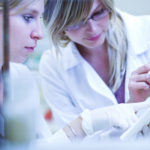
New Alzheimer’s genes discovered in world’s largest study
Two new genes that raise a person’s risk of developing Alzheimer’s disease have been discovered by researchers. Cardiff University reports an international team, involving its Dementia Research Institute, compared thirty two thousand genetic codes from patients with Alzheimer’s disease and healthy individuals. The researchers uncovered several new genes and specific mutations in those genes that … Continue reading New Alzheimer’s genes discovered in world’s largest study
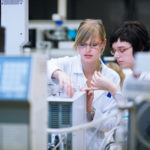
Novel insight into chromosome 21 and its effect on Down syndrome
Scientists have identified specific regions of chromosome 21 which cause problems in memory and decision making in mice with Down’s syndrome. They say it is the first time the areas have been determined – and suggest the findings may provide new insight into the condition in humans. Most people have forty six chromosomes, which carry … Continue reading Novel insight into chromosome 21 and its effect on Down syndrome

Researchers assess the value of dementia support groups
New ageing and dementia research, led by University College London, centres around people living with rare dementias, and will involve the first major study of the value of support groups for people living with or caring for someone with a rare form of dementia. Bangor University reports a team from the Bangor Institute of Health … Continue reading Researchers assess the value of dementia support groups
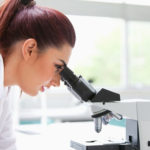
Even the simplest microbe can act like a savvy investor
Scientists investigating the fundamental question in biology as to why individuals have evolved to cooperate rather than simply exploiting the contributions of their rivals, have found that microbes vary their contribution to maximise the return of investment. The University of Bath reports a collaboration between its Milner Centre for Evolution and University College London has … Continue reading Even the simplest microbe can act like a savvy investor

WiFi routers could act as medical sensing devices
New research that could transform the future of healthcare will investigate whether it is possible to reuse WiFi radio waves as a medical radar system. The research, led by the University of Bristol, is part of a new £1.5m grant awarded by the Engineering and Physical Sciences Research Council (EPSRC), Toshiba and Decawave to the … Continue reading WiFi routers could act as medical sensing devices

Using HIV data to improve clinical outcomes
£11m has been awarded to eleven projects by the Engineering and Physical Sciences Research Council (EPSRC) to further the understanding of trust, identity, privacy and security (TIPS) issues in the digital economy. The University of Bristol reports one of the eleven projects selected is INTUIT, a study that aims to identify and address fundamental TIPS … Continue reading Using HIV data to improve clinical outcomes

Study challenges evidence for proactive reading brain
A scientific team led by the Max Planck Institute for Psycholinguistics in the Netherlands, supported by scientists from the University of Bristol, has demonstrated that the predictive function of the human language system may operate differently than the field has come to believe in the last decade. Dr Mante Nieuwland, Cognitive Neuroscientist at the Max … Continue reading Study challenges evidence for proactive reading brain
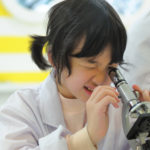
Transforming treatment for arthritis and uveitis
Researchers from the University of Liverpool’s Institute of Translational Medicine and Alder Hey Children’s NHS Foundation Trust will join a UK-wide effort, including colleagues from five other universities, to drive the development of new, targeted treatments for children and young people with juvenile idiopathic arthritis (JIA) and its associated eye inflammation condition, uveitis. The University … Continue reading Transforming treatment for arthritis and uveitis
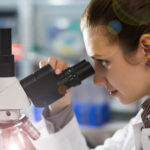
Test for kidney damage in children with cystic fibrosis
New research, published in Nature Scientific Reports, conducted by the University of Liverpool and University College London highlights effective methods for identifying a common side effect in children receiving drug treatments for cystic fibrosis. The genetic disorder cystic fibrosis (CF) is characterised by secondary bacterial lung infections, often by a specific resistant bacteria, pseudomonas aeruginosa. … Continue reading Test for kidney damage in children with cystic fibrosis








